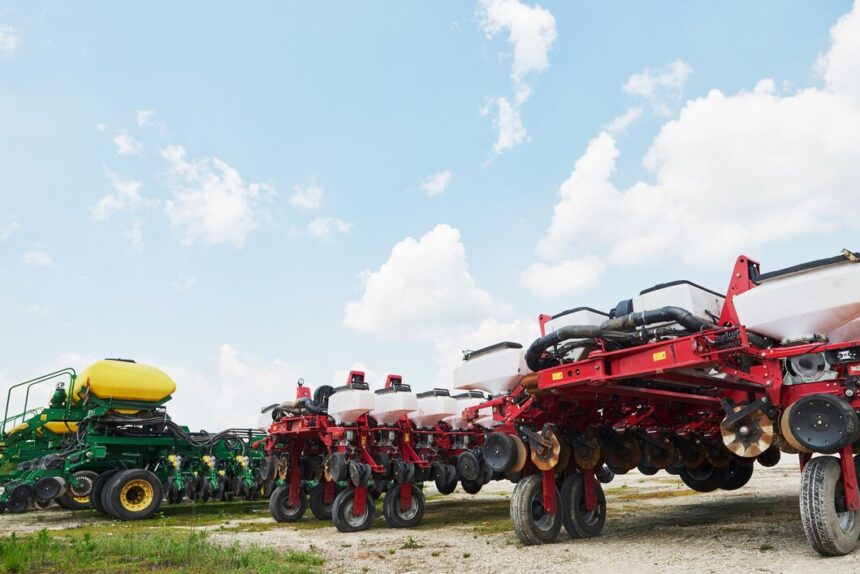Agriculture plays a critical role in South Africa’s economy, contributing to food security, job creation, and export earnings. However, the sector operates under stringent regulations and policies designed to ensure sustainability, food safety, and environmental protection. For farmers, understanding these policies is vital, not only for compliance but also for leveraging opportunities and modern equipment to enhance productivity.
Key Agricultural Policies in South Africa
South Africa’s agricultural policies aim to balance economic growth with sustainable resource use and equitable access. Below are some critical policies farmers need to understand:
1. The Agricultural Product Standards Act (APS Act)
This act ensures the quality of agricultural products intended for export or local consumption.
- Compliance Tip: Invest in grading and sorting equipment to meet product quality standards, particularly for export crops like maize, fruits, and wine.
2. Conservation of Agricultural Resources Act (CARA)
CARA promotes sustainable farming practices, including soil conservation, erosion control, and alien plant management.
- Compliance Tip: Use precision farming equipment like GPS-guided tractors to prevent soil degradation and ensure efficient resource use.
3. Broad-Based Black Economic Empowerment (B-BBEE)
The B-BBEE framework encourages equitable participation in agriculture, particularly for previously disadvantaged individuals.
- Compliance Tip: Form partnerships with emerging farmers and provide access to modern farming tools such as planters and harvesters.
4. National Water Act
This act governs water use for irrigation, requiring farmers to obtain water use licenses.
- Compliance Tip: Leverage efficient irrigation systems like drip or center-pivot irrigation to comply with water use regulations and minimize waste.
5. Occupational Health and Safety Act (OHS Act)
This act mandates the provision of safe working conditions for farm laborers.
- Compliance Tip: Equip tractors and other machinery with safety features like roll-over protective structures (ROPS) and ensure regular maintenance.
Leveraging Equipment for Policy Compliance
Modern agricultural equipment can help farmers meet policy requirements while improving efficiency and yields. Below are key areas where equipment can play a pivotal role:
1. Sustainable Soil Management
- Equipment: Cultivators, subsoilers, and soil testing kits.
- Benefit: Complies with CARA by preventing soil erosion and improving soil health.
2. Efficient Water Use
- Equipment: Drip irrigation systems, moisture sensors, and rainwater harvesting systems.
- Benefit: Ensures compliance with the National Water Act and optimizes water usage.
3. Pest and Weed Control
- Equipment: Sprayers with precision nozzles, automated weeders, and drones.
- Benefit: Reduces pesticide use, aligning with sustainable farming practices under CARA.
4. Product Quality Assurance
- Equipment: Grading machines, packaging equipment, and cold storage units.
- Benefit: Meets APS Act standards, ensuring high-quality agricultural products for local and international markets.
5. Safety and Labor Efficiency
- Equipment: Ergonomically designed tools, protective gear, and mechanized harvesters.
- Benefit: Complies with OHS Act by reducing manual labor risks and improving worker safety.
Opportunities for Farmers
Understanding and adhering to agricultural policies can open doors to various opportunities:
- Government Grants and Subsidies: Programs like the Comprehensive Agricultural Support Programme (CASP) offer funding for equipment purchases.
- Export Markets: Compliance with standards under the APS Act can increase access to lucrative international markets.
- Sustainability Certifications: Adopting eco-friendly practices can earn certifications that boost marketability.
Practical Steps for Farmers
- Stay Informed: Attend workshops, read government publications, and engage with agricultural extension officers.
- Invest in Training: Learn how to operate modern equipment effectively to maximize its potential.
- Join Cooperatives: Pool resources to acquire high-cost equipment like combines and irrigation systems.
- Utilize Technology: Incorporate smart farming tools like satellite imaging and software for monitoring compliance metrics.
Navigating South Africa’s agricultural policies may seem daunting, but with the right knowledge and equipment, farmers can turn compliance into an advantage. By leveraging modern tools and aligning with regulations, farmers can boost productivity, access new markets, and contribute to the sustainability of the agricultural sector. Take the initiative today to understand the policies shaping South African agriculture and equip your farm for success.
Join 'Farmers Mag' WhatsApp Channel
Get the latest Farming news and tips delivered straight to your WhatsApp
CLICK HERE TO JOIN






